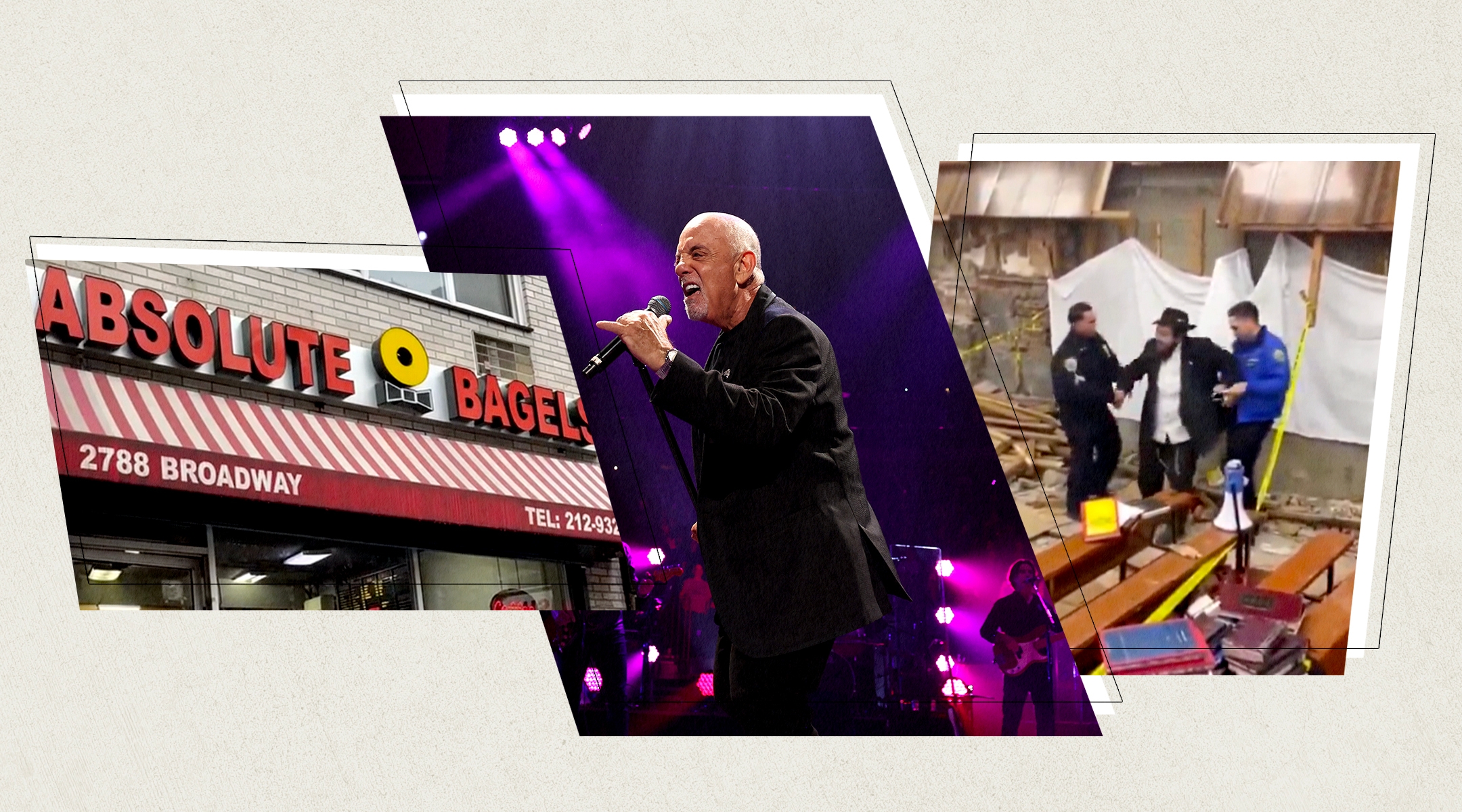As 2024 comes to a close, we look back and mourn those we lost this past year, including the Jewish icons whose legacies left an outsized impact on the city, as well as those who lost their lives or were otherwise impacted by the ongoing war between Israel and Hamas.
But in a place like New York City, where the vibe is frequently Jewish and the only constant is change, we must also say goodbye to the places, things and ideas that are no longer with us. From an Upper West Side bagel institution to illicit underground tunnels in Brooklyn, here are 10 things Jewish New York lost in 2024. May their memories be a blessing.
Absolute Bagels
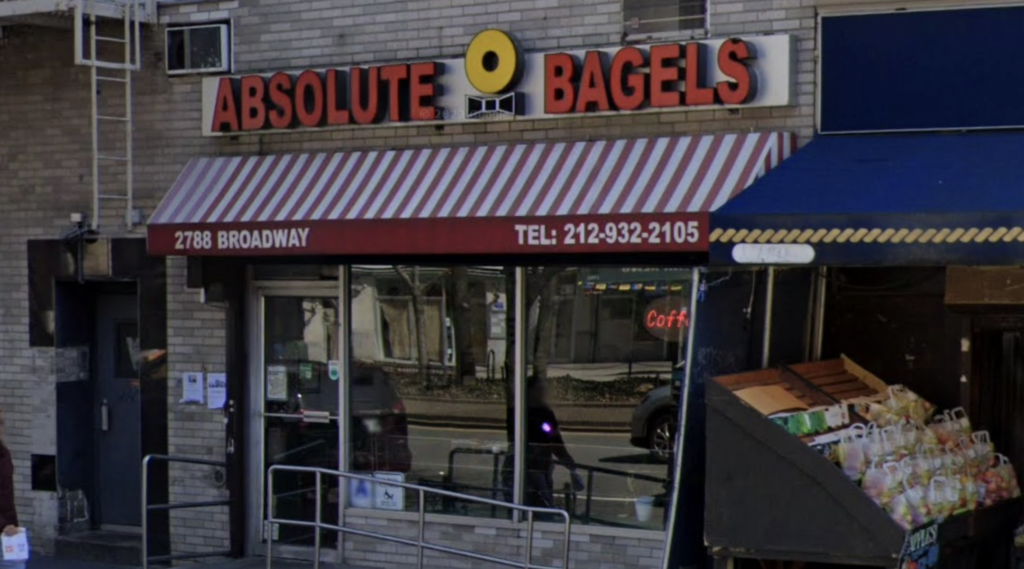
An Upper West Side institution, Absolute Bagels permanently closed on Dec. 12. (Google Maps screenshot)
Absolute Bagels, an Upper West Side institution that first opened its doors in 1990, permanently closed out of the blue earlier this month — and customers were devastated. “I felt the same emotional feeling as identifying the body of a loved one at a morgue,” one regular told the Forward, standing outside the beloved bagel shop on Broadway on its first day out of business. (A Gothamist report revealed that Absolute Bagels had received a litany of health code violations, including just days before its closure.) The loss leaves bagel-craving Jewish New Yorkers with one less lovable, cash-only destination. Nonetheless, opportunists have looked to capitalize on the outpouring of emotion: One eBay user tried to auction off three of the last remaining Absolute bagels for $49.99. There are many ways to properly memorialize Absolute Bagels — but paying more than 16 bucks a bagel probably isn’t one of them.
Cafe Lalo
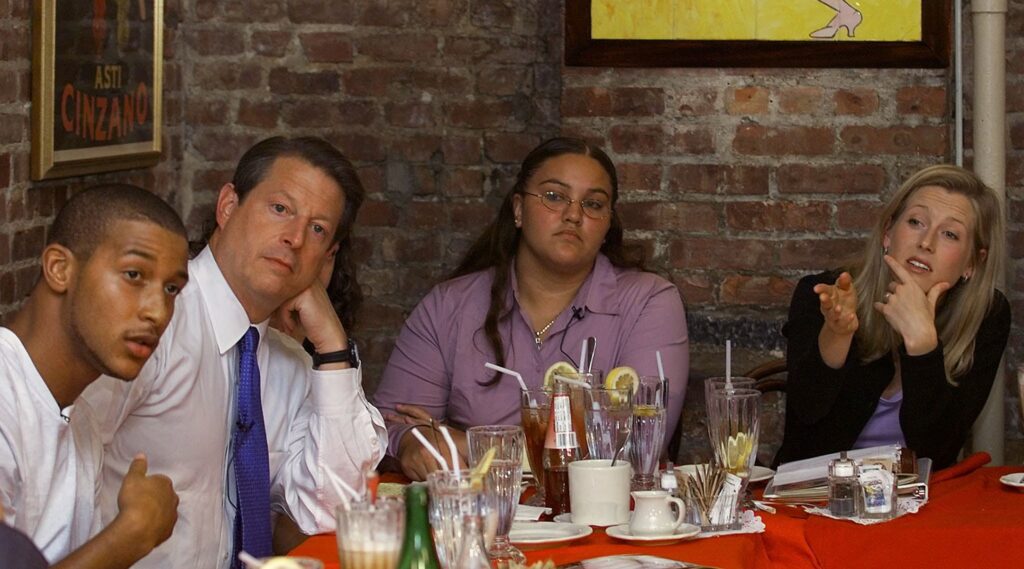
Fans of Cafe Lalo include, presumably, former U.S. Vice President Al Gore (second from left). (Luke Frazza/AFP via Getty Images)
Speaking of Upper West Side institutions, Cafe Lalo — born in 1988 and catapulted to fame by its role in the 1998 Nora Ephron rom-com “You’ve Got Mail” — officially closed its decades-old West 83rd Street home this year. With its floor-to-ceiling French windows,“the cafe Europeans would love to have in Europe,” as its tagline went, was founded and owned by Israeli expat Haim Lalo. In 2020 it was temporarily closed “for renovations” — but a West Side Rag report on Oct. 31 confirmed that it would not be reopening. The closure is a tough blow for Upper West Siders who enjoyed the cafe’s desserts and live jazz during hours when most other cafes were closed. And it’s an especially tough blow to those looking for a cute date spot where they could cosplay as Meg Ryan or Tom Hanks.
Billy Joel’s MSG residency

Billy Joel’s Madison Square Garden residency began the same month Bill de Blasio was sworn in as NYC mayor. (Myrna M. Suarez/Getty Images)
Legendary musician Billy Joel had been playing monthly shows at Madison Square Garden since January 2014. (For reference, Bill de Blasio was first sworn in as NYC mayor that same month.) Joel, who was born to Jewish parents in Brooklyn and identifies as an atheist Jew, said he would continue the monthly shows for as long as there was demand for them. Fast forward a decade and the only thing that could interrupt Joel’s 104-show run was a global pandemic. Outside the lockdown period, the Piano Man’s performances at MSG became a natural occurrence, like the sun rising or a traffic light turning green. Now, imagine a world without sunrise and green lights: We’d have chaos. What does a world without Billy Joel’s residency look like? Well, this is what happened at MSG just a couple months after his final show in July, so you tell me.
Shayna Maydele’s candidacy for honorary dog mayor

Shayna Maydele, a coton de tulear who just may be the most Jewish dog in NYC, ran for Honorary NYC Dog Mayor. (Instagram)
Shayna Maydele, an adorable coton de tulear who may just be the most Jewish dog in NYC, seemed like a candidate we could all get behind as Honorary NYC Dog Mayor this year. With her weekly Shabbat posts on Instagram, stylish kippah collection and campaign promise to turn all clouds into bagels, Shayna Maydele had the rare makings of a mayoral candidate who could transcend political party lines and unite the Jewish vote. Alas, on Aug. 8, the official Dog Mayor NYC Instagram account announced that our girl was outvoted in the first round of the tournament-style election by Ziggy the Yorkie Mix. One Instagram user, @randibop, captured our thoughts exactly, commenting, “Truly this should have been the final it’s like Federer v Nadal in a first round match.” But all is not lost: After a hard-fought election — which, naturally, was hijacked by crypto enthusiasts who named coins after candidates in a pump-and-dump scheme — voters elected another Jewish canine in the role, Simon the Basset-Cattle Dog, an Upper West Sider who has celebrated Rosh Hashanah on his popular Instagram account.
The tunnels underneath Chabad’s headquarters at 770 Eastern Parkway

The tunnels were the work of “a group of extremist students,” according to Chabad’s director of media relations. (Screenshot)
It feels like ages ago, but it was just earlier this year — Jan. 8, to be exact — when clashes broke out at the Chabad-Lubavitch movement’s world headquarters at 770 Eastern Parkway in Crown Heights, resulting in police arresting 12 students. Reports of unauthorized tunnels burrowing into a synagogue there had surfaced in Dec. 2023; on Jan. 8, construction workers arrived with cement trucks to repair the damage, as the DIY tunnel project had threatened the structural stability of two buildings. Drama ensued, arrests were made and, ultimately, the tunnel project met its demise. The tunnels were the work of “a group of extremist students,” wrote Chabad’s director of media relations, and part of a controversial movement to expand 770, which served as the office of the late, deeply revered Chabad leader Rabbi Menachem Mendel Schneerson, known as the Rebbe. While the episode made for a reliable conversation starter — “You hear about the tunnels?” worked for at least two weeks — it also gave rise to a wave of antisemitic memes and baseless conspiracies about “what was really going on in those tunnels.” (According to the Department of Buildings, the tunnel was empty except for dirt, tools and debris.)
The outdoor dining sheds that looked like sukkahs
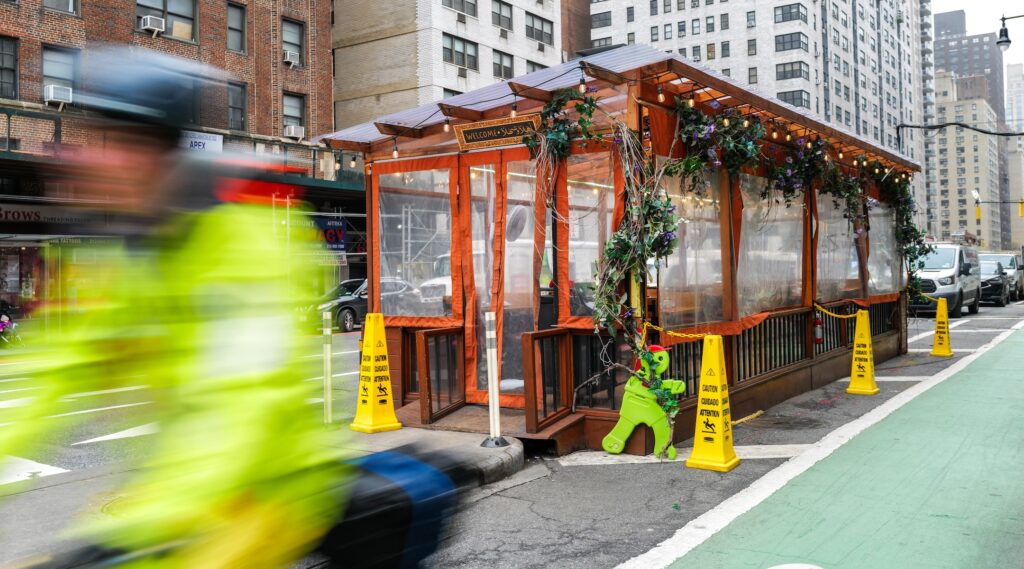
An outdoor dining shed on First Avenue which confusingly appeared, to some, like a sukkah in mid-March. (Charly Triballeau/AFP via Getty Images)
While not technically Jewish, the dining sheds that first graced NYC streets amid COVID restrictions certainly looked Jewish — and that’s because they resembled sukkahs, the temporary huts that Jews erect during the fall harvest festival of Sukkot. Since the pandemic, there have been thousands of cafes and restaurants with three-walled, outdoor wooden structures with enough decorative greenery to pass for schach. And each time you dined at one, it felt like you were celebrating Sukkot. (Yes, even eating huevos rancheros in the middle of May, you still couldn’t rule out the possibility of someone sticking a lulav in your hands at any moment.) But following the success of the COVID-lockdown-era program, this year the city enacted new, stricter rules for roadway dining sheds, including a mandate that they must all be taken down by Nov. 29. With restaurants tasked with storing their “streeteries” until the season reopens April 1, the future of these tabernacle-like structures are now in serious jeopardy: The Department of Transportation received 1,412 applications for roadway dining permits next year — a massive drop from the 12,000 applications received for the previous temporary program, according to The New York Times. Do we really need to wait until October 2025 to be in a sukkah??
(Confidence in) Patis
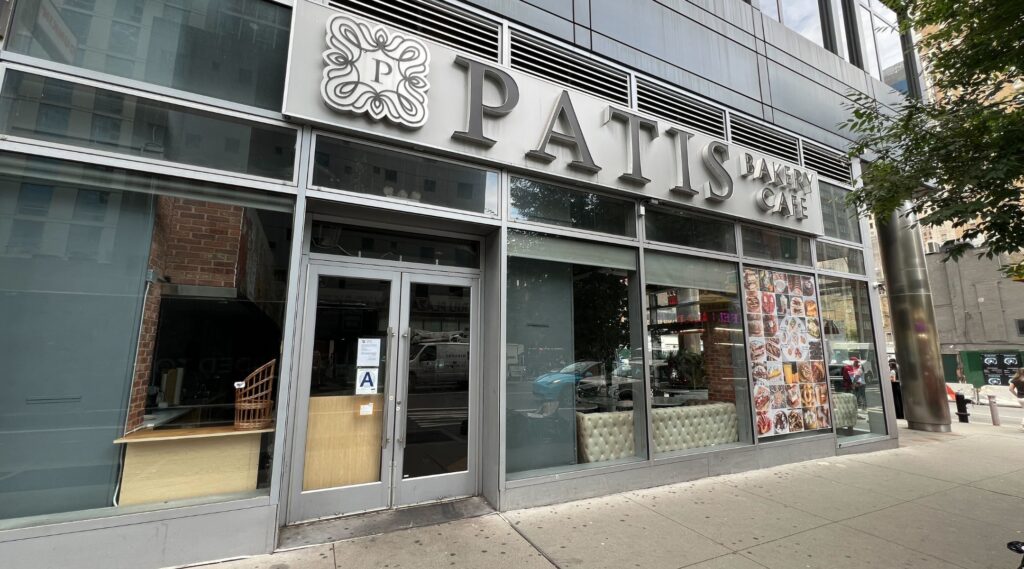
Patis Bakery, a rapidly expanding kosher bakery, filed for bankruptcy in June. (Jackie Hajdenberg)
Patis Bakery hit the scene in 2018 as a destination for high-quality kosher pastries combined with urban cafe culture. The chain quickly grew, expanding to more than a dozen locations across the New York area — then, this past June, it filed for bankruptcy. Three of its locations — on the Upper East Side, Midtown East and Times Square — closed down this year, with a fourth (in the Midwood neighborhood of Brooklyn) displaying a “For Rent” sign that suggested another closure to come. “I don’t know. It’s kind of upsetting, given it’s really good food — but not entirely surprising,” said one Upper West Side customer about the chain’s troubles. The rapidly-expanding cafe’s bubble-burst is even less surprising knowing that monthly rent at the Times Square location was $62,000. An array of Patis locations are still open and, thankfully for kosher dessert lovers, the chain will live to see 2025. But confidence in its longevity? It seems like that departed around the time customers began frantically cashing in their gift cards.
Stand Up NY on the Upper West Side
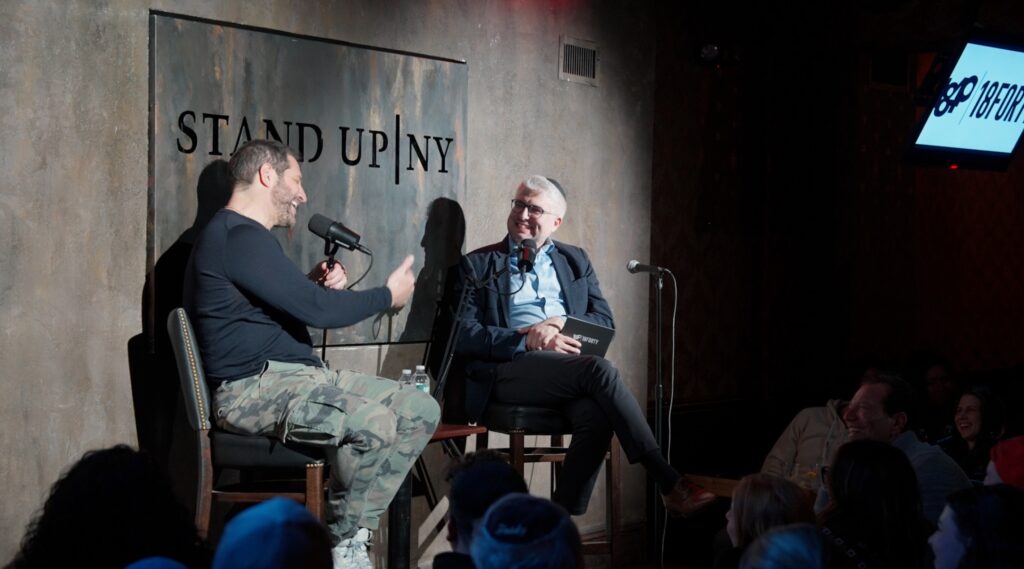
Stand Up NY operated on the Upper West Side for 38 years before its move to Times Square. (Courtesy of Stand Up NY)
After 38 years on the Upper West Side, legendary comedy club Stand Up NY moved on to a bigger — or, at least, brighter — locale: Times Square. “Times have changed since COVID,” said Dani Zoldan, who has owned Stand Up NY since 2008. “I was just itching for a change and to refresh the brand.” The club — which attracted Jewish crowds and booked a 27-city “Stand Up for Israel” tour in the wake of the Hamas attack on Oct. 7, 2023 — still books Jewish comedians and serves kosher wine at its new location tucked inside Bond 45, an Italian restaurant at the Hotel Edison at 221 West 46th St. Nonetheless, Zoldan said the venue’s longtime home on Broadway and 78th Street — which had hosted the likes of Jerry Seinfeld, Robin Williams and Jon Stewart — was losing out on foot traffic in the neighborhood’s quieter, post-COVID era. He added that it was becoming harder to convince performers to leave the downtown epicenter of the comedy scene for the Upper West Side. Which makes us wonder: Were they unaware that Zabar’s was around the corner?
M&J Trimming
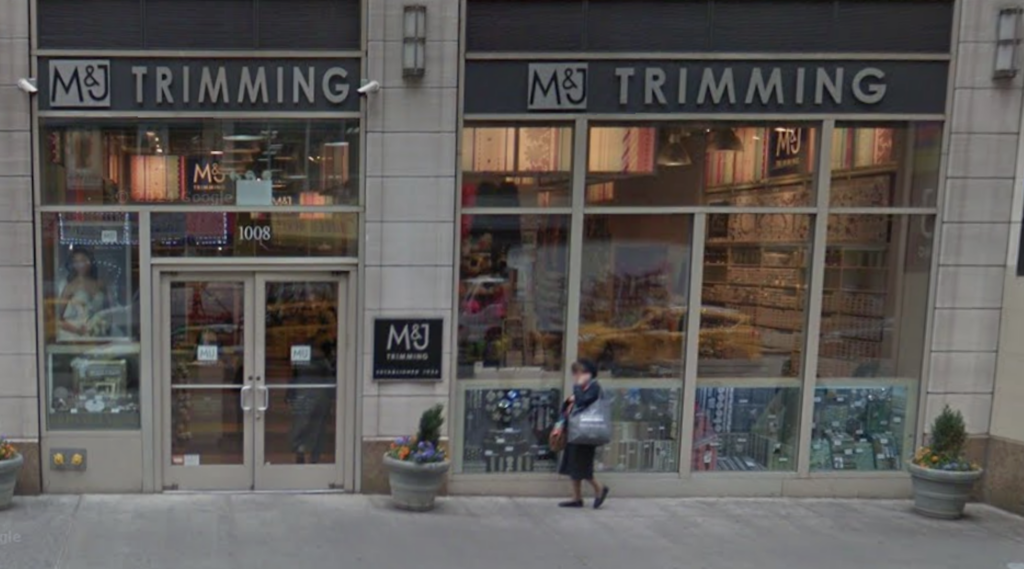
Founded by brothers Michael and Joel Cohen, M&J Trimming became a Garden District institution. (Google Maps screenshot)
Founded nearly a century ago by the Cohen brothers (no, not the Coen brothers), Michael and Joel, M&J Trimming became a Garment District mainstay and an essential destination within the fashion industry. Its client list includes Kate Spade, Ralph Lauren, Calvin Klein and Vera Wang, and Lady Gaga name-dropped the shop in her “Marry the Night” music video. “But beyond the fashion world,” Curbed wrote in September, shortly after the store’s abrupt closure, “it was also a haven for amateurs and artists and actors and teens, for whom the crammed aisles promised transformation by ribbon, lace, and button.” The family’s legacy lives on with Samuel & Sons, a store for interior design trimmings with a showroom in Midtown East at 983 Third Ave., founded by Samuel Cohen (the son of M&J’s Michael), which he runs with his sons: Michael, Hymie and Joseph.
Anthony Weiner’s shame
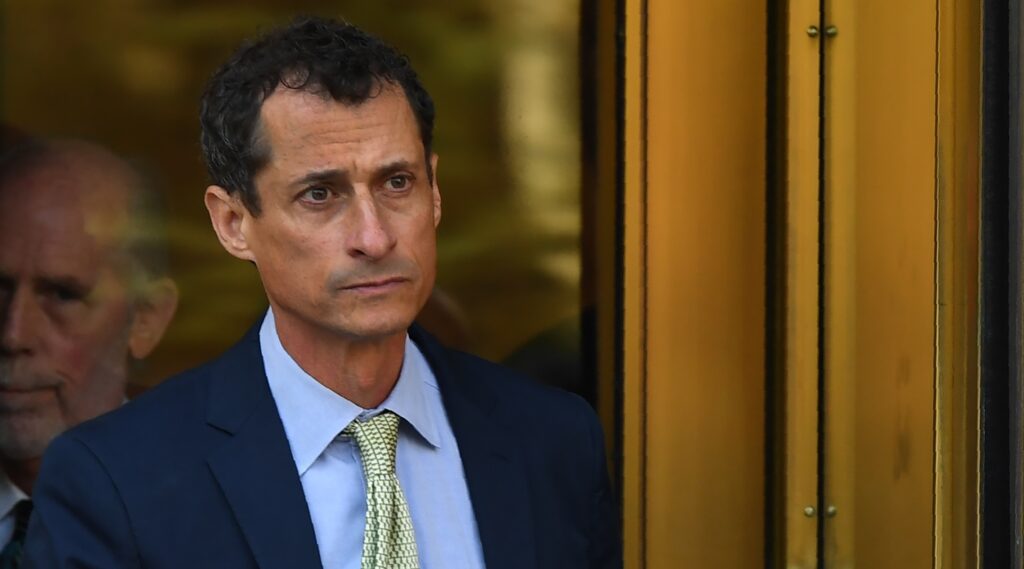
Anthony Weiner, who spent 18 months in prison for sexting with a 15-year-old girl, is running for City Council. (Timothy A. Clary/AFP via Getty Images)
Anthony Weiner is attempting a political comeback. Again. He resigned from Congress in 2011 in the wake of his first sexting scandal. In 2013, he decisively lost the mayoral primary race after a brief surge (finishing in fifth place with 4.9% of the vote) amid his second sexting scandal. Then, in 2016, Weiner was convicted of sexting with a 15-year-old girl; he spent 18 months in prison and was ordered to register as a sex offender upon his release. (The FBI’s seizure of his laptop also led to the reopening of their Hillary Clinton email investigation less than two weeks before the presidential election, as Weiner was married to Huma Abedin, a top Clinton aide, at the time. Clinton partially blamed that development for her loss to Donald Trump.) At this point, we figured Weiner’s disgrace was here to stay. “Weiner doubts he’ll ever run for office again,” was the headline of a story published by The Hill this past June. But, apparently, a lot can change in six months: On Dec. 10, Weiner filed paperwork to run for NYC Council, where he got his start in office. And with Weiner’s shame having so abruptly vanished, a new question arose: Was it ever really there at all?
The New York Jewish Week brings you the stories behind the headlines, keeping you connected to Jewish life in New York. Help sustain the reporting you trust by donating today.
